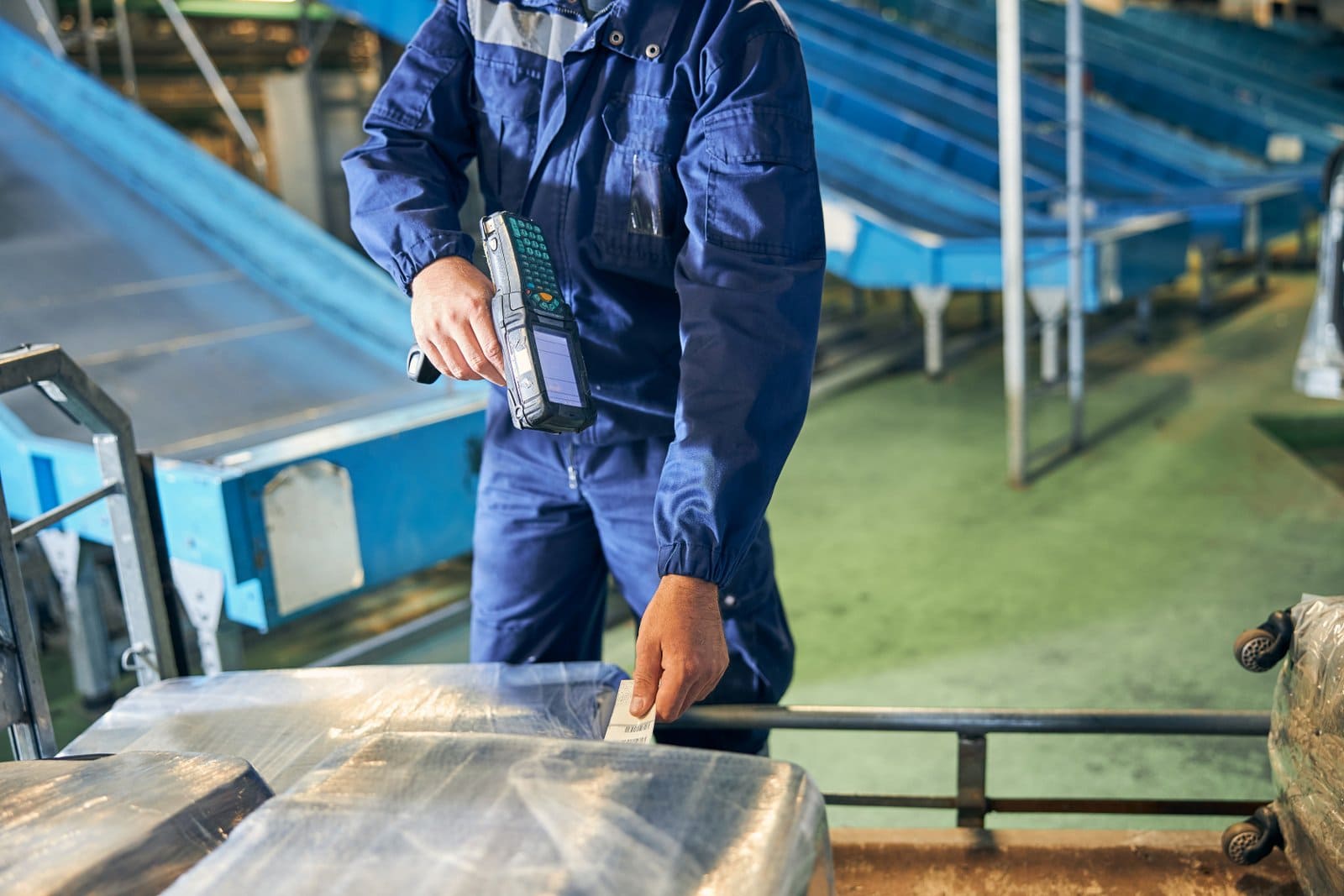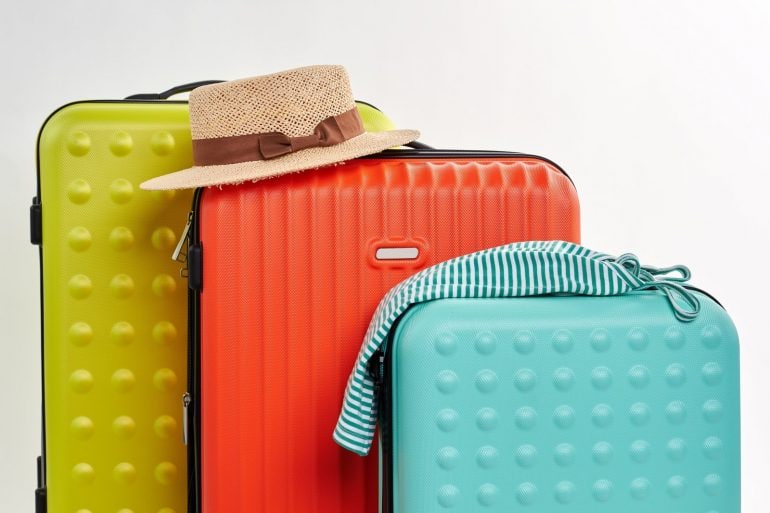When you fly, should you be concerned about putting more than clothes and shoes in your checked bag?
Because if you just hate schlepping all that carry-on stuff, of course, it would be easier if you could just check it all. But is the reward worth the risk?
Carry on my wayward suitcase
As reports of items stolen from checked luggage become more and more prevalent, the question looms: Is your checked luggage really safe?
In a word — no. Not often enough, at least.
Although reports of theft of expensive items from checked baggage are on the rise, it’s still certainly the exception rather than the rule. Having said that, there are a whole host of reasons why it’s not a good idea to put your laptop, camera, or Incan matrimonial headmasks in your checked bag — theft being just one of them.
I’m not sure if you’ve ever taken the time to watch those baggage handlers through the window of the plane as you’re idly passing time before departure, but they’re not exactly gentle. There is a reason why they’ve picked up the derogatory nickname “baggage throwers.”
Did you put your late grandmother’s prized porcelain doll collection in your suitcase? Better hope your underwear is as good a packing material as you think it is.
Finally, there’s my personal favorite scenario: You’ve checked a bag containing your clothes, shoes, and toiletries so that you can carry on both your camera bag and your laptop bag. You just have one change of planes, so you think you’re going to be just fine.
Then you arrive at your destination — and after 15 minutes of standing at the carousel, it finally shuts off and stops moving and the sinking feeling hits you. Your bag is missing.
Sometimes luggage was simply mis-routed and they know where it is, and it shows up after a few days. Maybe it will randomly show up in a couple weeks — but many people whose bags don’t make it to their destination with them are never reunited.

12 tips to limit your baggage risk
So this brings us to the “what to do about it” portion of the program. Lucky for you, we have some tips on how to handle your luggage, especially when you’re trusting other people to handle it, too.
1) Don’t check anything you aren’t willing to lose. Simple enough, right? Hey, if you’re okay with the fact that your $1500 digital camera might get lost or stolen, and you’ll have to fight for three months with the airline to get reimbursed (if ever), be my guest. Otherwise, this brings us to…
2) Bring all your expensive electronic toys as carry-on. I know. Staggering through the terminal trying to catch your next connection with a 40-pound backpack is no fun. But if you like your iPad or your laptop, keep it where you can see it (and where you can make sure it’s not being dropped or crushed).
3) Never check your medications. Apart from the fact that you might need them during or just after the flight, and they’re tough to replace when you’re not home, prescription drugs are also very attractive to a thief. Just carry your meds and prescriptions with you. (Use something like a weekly pill organizer if you don’t want to bring along entire bottles.)
4) If you must check valuables, use a TSA-approved lock. Since the TSA needs to be able to search your bag at any time (in the US, at any rate) you either need to leave your bag unlocked, or use a lock approved by the TSA, for which they (and theoretically only they) posess a master key for.
5) Check the airline luggage tags. Before they send those things into the black hole that processes luggage at most major airports, verify the bags are going the same place as you.
6) Eliminate potential snags. Make sure there are no straps, handles, baggage tags or other little bits that can snag as your bag goes through the conveyor system.
7) Get to the baggage claim carousel in time. Especially if you were among the last people off the plane, or the aircraft parked at one of those distant gates, you will want to get to the baggage claim area quickly so you can make sure nobody else takes your luggage.
8) Make your bag easy to identify. Something unique helps not only when picking your checked bag up at the carousel, but also in the event that it is lost. They’re going to ask you to describe it. “Yeah, it’s a black, rectangular nylon suitcase…” Right. So are almost all of the other bags out there. Use a stencil and spray paint your name on it, wrap some yarn around the handle — or just get creative with some brightly-colored duct tape. Anything that makes it stand out.
9) Prepare for a lost, stolen, or damaged bag. If you must check a bag, make sure you can survive for 48 hours at your destination with what’s in your carry-on luggage. Most delayed bags arrive within 24 to 36 hours, so if you can hold out that long, you won’t have to run to Target to buy underwear.
10) Keep a list of what exactly is in your checked bag. If it does end up lost, and you plan on applying to the airline for reimbursement, you better have a good idea of what was in there and documentation thereof — especially if it was something expensive.
11) Examine your bags as soon as possible after arrival. If anything is broken or missing, you’ll want to know as soon as you can so you can contact the airline. United Airlines, for example, says that delayed baggage should be reported to the airport immediately after the arrival of your flight, or by calling them within 24 hours of your arrival.
12) File a claim quickly. If you haven’t received your baggage within three days of your flight arrival, United says it’s time to start the claims process. According to the Office of Aviation Consumer Protection and Enforcement, the most an airline will pay on lost bags and their contents $3300 per passenger on domestic flights, and $1131 per passenger on international flights.
Plane truth
The bottom line: Checked baggage is reasonably safe, though certainly not delicately handled by white-gloved folks with a soft touch. I’d be more trusting of sending my valuables well-packed via UPS or FedEx to my destination than in checked luggage, however.
In short, if you keep your valuables in your carry-on and don’t put anything in your checked bag you can’t live without, you minimize your risk and the scope of hassle if your suitcase (or something within it) disappears.








